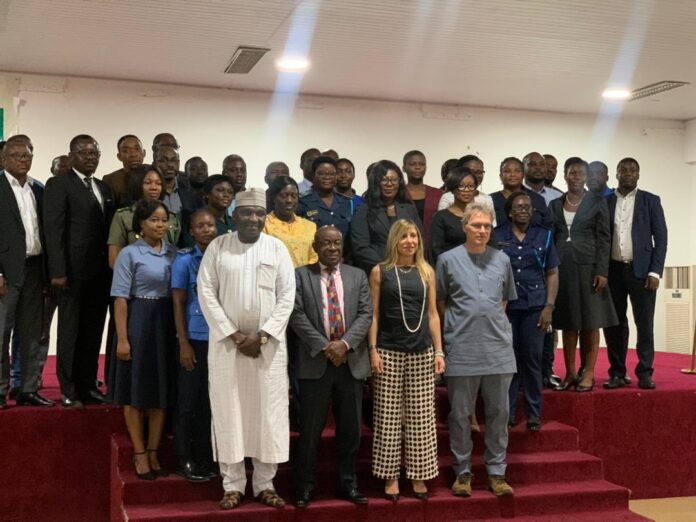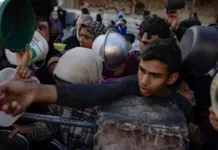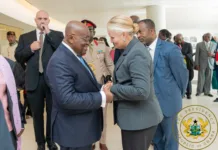
A joint committee made up of members drawn from the Financial Intelligence Centre, European Union and inter-Governmental Action group against money laundering in West Africa (GIABA) have expressed worry about increasing Money Laundering Activities across African countries to Finance Terrorism.
Money laundering and Terrorist Financing, illicit financial flows and Maritime crime in the Gulf of Guinea continue to be a source of worry and concern, as activities pose serious threats to national peace and security.
According to the EU, FIC and GIABA, it has become necessary for stakeholders to understand the methods and techniques used by criminals to launder money so as to devise strategies in ending the canker.
Director, Policy, and Research for inter-Governmental Action group against money laundering in West Africa (GIABA) Mu’azu Umaru speaking to the media during sensitization workshop in Accra said: “crimes committed wholly or partly at the sea, the proceeds generated are brought offshore for the benefit of the criminals and of course, they wouldn’t want anyone to trace these proceeds and back to their illicit origin”.
On account of geographical location, Ghana occupies a strategically important position in the Gulf of Guinea. Ghana relies heavily on international maritime commerce and exploitation of her Maritime resources. Thus, the Maritime space continues to serve as a source of livelihood to many including employment at the micro level and contribution to the GDP of the country at the Macro level.
“Indeed, about 7.5 million People in Ghana live in the coastal areas and double that number live about 50km away from the coast. Like many other coastal African countries, Ghana significantly relies on its blue economy for income, employment, and food. The oil and Gas sector has generated over $4billion in revenue since it commercial operations began in 2010″, he said.
According to Mu’azu Umaru, as efforts are being taken to enhance the peace and security of the Gulf of Guinea and other African countries, it has become very necessary for stakeholders to understand the methods and Techniques used by the criminals to launder proceeds so as to put in place mechanisms to deny these people from benefiting from these crimes.
” Indeed, while the outcome of the study revealed that illicit financial flows and money laundering were difficult to track in the country’s Maritime framework, particularly due to the transnational nature of crimes at sea, tax evasion, trade-misinvoicing, piracy, robbery, drug trafficking and human trafficking were identified as some of the most prevalent. Wire transfers, use of front companies, among others were also identified as some techniques used to launder the proceeds”, he added.
Source: Ghana/Starrfm.com.gh/Prince Essien




